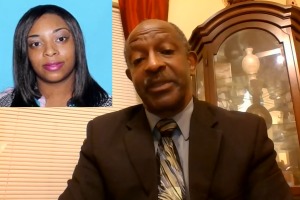Lee Strobel on the Case for a Creator
Some 80 years have passed since the Scopes Monkey Trial sparked a heated battle on teaching creation and evolution side-by-side in public schools. The debate is still running, but according to some professors, scientific developments have fundamental
Some 80 years have passed since the Scopes Monkey Trial sparked a heated battle on teaching creation and evolution side-by-side in public schools. The debate is still running, but according to some professors, scientific developments have fundamentally shifted the landscape by adding a relatively new theory - intelligent design – to explain the origins of life.
The issue of an intelligent designer is at the heart of society's worldview, how people live, behave, and organize themselves, according to leading Christian experts. However, while intelligent design makes the case for a creator, it does not make the claim that the creator is God.
One of the nation's leading apologists and best-selling authors, Lee Strobel, wrote Case for a Creator in 2004 and asserted that the latest scientific discovery is God.
A former atheist journalist for The Chicago Tribune, Strobel converted when he saw his wife change. He spent two years investigating the religion using his journalistic and legal training and asked the nation's leading Christian apologetics experts difficult questions. Later this became the popular best-seller, The Case for Christ.
Now a Christian expert, himself, Strobel travels the country telling audiences that there is hard evidence that suports the Christian faith. This past weekend, he spoke at the sold-out Dare 2 Dig Deeper teen apologetics conference in Colorado Springs, Colo.
After having written the book Case for a Creator, have you found science able to prove that the Creator is the God of the Bible?
Yes. My book states that from the scientific evidence – cosmology, physics, biochemistry, genetics, and consciousness – we can see that the evidence points toward a creator. We can also see some of the characteristics of that creator from the logical implementation of the evidence. When we do that, we see a portrait that matches the God of the Bible.
For instance, if you look at cosmology, the study of the universe's origin, whatever begins to exist, has a cause. Scientists believe that the universe must have had a cause. The implication of that cause must be very powerful, very intelligent, immaterial, and beyond time because time was created when the universe was created. So you see, there are some characteristics there. And I think there are good arguments to be made for one creator as opposed to many.
And so we start to see some of the characteristics of this creator, which matches the God of the Bible. And when we look at a variety of the disciplines, you can paint a bigger and an even more accurate and complete picture of a God who cares for us, a God who has provided a habitat for us. You go down the line of scientific disciplines and you can see that they match the God of the Bible.
Now, you can't get to Jesus from there. That's a historical question. Science can only take you so far. Science can take us to the logical conclusion that there is a creator who matches the God of the Bible. I think we have to look at history, and history can tell us that Jesus lived, he did claim to be the Son of God, and he returned from the dead, and thus proved that he is the Son of God. So we have to combine history and science together to get a really strong foundation for Christianity.
But apologetics only goes so far. It does not teach you what the Word of God teaches you, about love and faith.
Exactly. It can tell us that the writings that we have in the Bible are historically trustworthy and therefore the teachings of Jesus can be relied upon. So scientific or historic evidence can't tell us everything, but it can give us confidence that the New Testament in the Bible can be trusted. We can have confidence as we put our faith in him that we're not buying into wishful thinking or make-believe, but we're basing our lives on history.
Can you share some insight with us about a future trend of apologetics?
I think in the 1960s, there was a lot of emphasis on debating the issues, and I've moderated some debates between Christians and atheists on a TV show called Faith Under Fire, but I think what's more important in today's culture and climate is a discussion of the issues. Sit down with people and build a relationship, and then, discuss the evidence that gives us confidence in the truth of Christianity.
We're seeing that in seeker small groups - gatherings of half a dozen nonbelievers led by a Christian or a Christian couple - they can investigate whether or not Christianity is historically reliable and whether it makes sense for their lives. These discussion groups create a safe environment where they can discuss and be in agreement. I think that as people pursue the truth about God, they're going to find it. So there's a bit of a shift from debating to discussing and that's healthy. Dialogue is more fruitful because debate can push people in separate corners and force people to defend their positions as opposed to engaging in a thoughtful conversation where hopefully it can come to grips with the evidence.
Lee, I understand you spoke at the sold-out Dare 2 Dig Deeper teen apologetics conference hosted by Focus on the Family, this past weekend, Aug. 26-27 in Colorado Springs. What did you talk about to the 1,600 or so teens?
The basic idea is that we have a defensible faith. From a scientific and historic perspective, Christianity is rational. It makes sense. It's grounded in reality, and it has a firm foundation. That's the message I think our culture needs these days when so many are buying into the relativism and post-modernist thinking that you have your truth, I have my truth, and they're both equally true even when they're contradictory. My message is that the Christian faith is scientifically and historically reliable. Therefore, we can depend on it. We can trust it. It works because it's true. It gives us the very best way to live our lives.
What made you decide to attend this teen apologetics conference as a main speaker?
It's interesting that among the letters I get from people who've read my books - most of them were between the ages of 16 and 24. I'm seeing a lot of young people who are interested in whether or not there is reliable evidence to support the beliefs. I became an atheist because when I was in school, there was nobody to get the Christian worldview from. Nobody was there to defend the Christian faith, and all I heard were attacks on it. So I became an atheist. That can happen.
I think it's important that we help young people see that there is scientific and historic evidence that their trust in Christ is well-placed. We see a lot of kids who go off-track when they go off to college. We can help prevent that by equipping them with the knowledge that they need to fend off critics of Christianity. They're going to encounter them at secular universities. That's why we created a student edition of Case for Christ and Case for a Creator. It's designed to reach high school kids to try to help them get a firm foundation so that they would be prepared when they heard their faith challenged by knowledge.
Having sold five million books in print, I would imagine that there have been quite a number of people who your ministry has touched. Can you share one story with us?
I receive scores of emails and letters from people who've come to faith through the books because through apologetics, they recognize that the Christian worldview is warranted by the evidence, and there are some remarkable stories.
One man went to a bookstore in a suburb of Chicago, and he sat on a bench to read a magazine and sat on something. It was a copy of my book, and he flipped through it. As an agnostic, he said I don’t believe this stuff, but he had a strong sense that this was not there by accident. He bought it and read it and became a Christian. I get a lot of stuff like that, especially from young people.
Lee, you have a remarkable personal story of how you came to believe in God, yourself. You have a masters of studies in law, taught first amendment law at Roosevelt University, wrote a book that deals with legal issues, and was the legal editor of The Chicago Tribune. Can you share how you came to faith?
I've been an atheist for most of my life and was skeptical towards spiritual issues and so forth. My wife who was agnostic ended up becoming a Christian in 1979 and because of the positive changes I saw in her values and character, it encouraged me to use my journalism and legal training to systematically investigate whether there was any credibility to religion, specifically Christianity.
So I used my legal and journalism training to investigate the scientific evidence for a creator as well as a historic evidence for Jesus and the resurrection. I ferreted out facts and established truths and applied that to the spiritual realm to see whether the evidence of history or science supported or contradicted the claims of Christianity. I did that for almost two years.
The books are a retracing and an expansion on the journey that I took as I investigated the evidence. So all my books were written after I converted. I recalled what it was like to be in a skeptic's shoes and asked experts in history and science, questions to see whether they make sense. I also used the atheists' best points to challenge the them. I even interviewed Canada's leading skeptic, Charles Templeton, before his death, and allowed him to talk to me about why he was a skeptic. Most of the experts I interviewed had good answers.
Strobel had been a teaching pastor at two of America's largest churches: Willow Creek Church in suburban Chicago and Saddleback Church in California. He is host of Faith Under Fire on PAX television and is contributing editor and columnist for Outreach magazine.
Award-winning writer of "The Case for Christ" and "The Case for Faith," his most recent titles include "The Case for Christmas," "God's Outrageous Claims," "Experiencing the Passion of Jesus," and "Faith Under Fire 1: Faith and Jesus." His best-sellers include "Inside the Mind of Unchurched Harry and Mary," which also won a Gold Medallion, "Surviving a Spiritual Mismatch in Marriage," which he coauthored with his wife, Leslie; and "What Jesus Would Say," all published by Zondervan.
Lee Strobel holds a Master of Studies in Law from Yale Law School, as well as a journalism degree from the University of Missouri. He has been awarded Illinois' highest honors for both investigative reporting and public service journalism from the United Press International. Strobel and his family reside in Southern California.




























